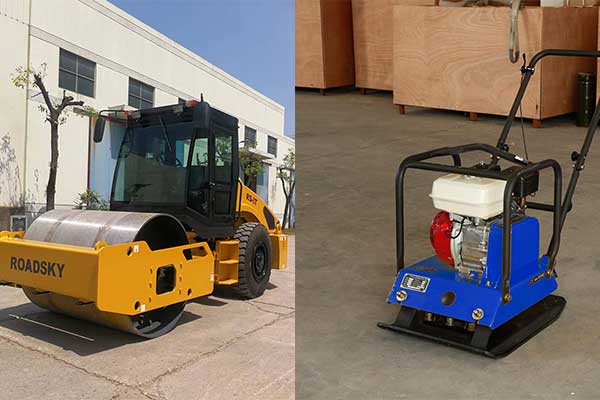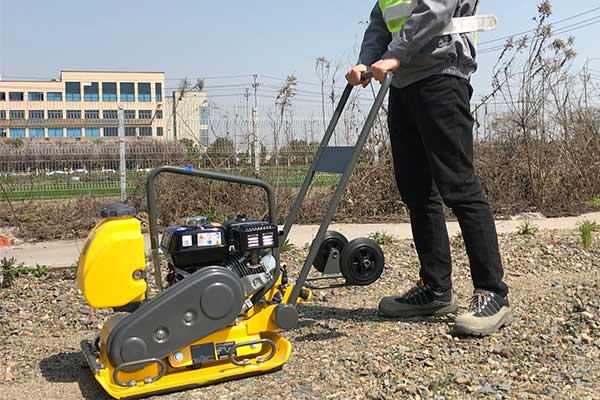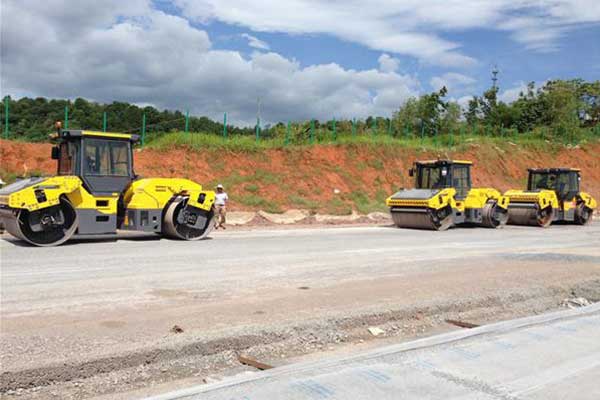Can I Use a Roller Instead of a Compactor?
When it comes to construction and landscaping projects, ensuring proper compaction of soil is crucial for stability and longevity. Compactors and rollers are two commonly used tools for this purpose. However, many individuals often wonder if they can interchangeably use a roller instead of a compactor or vice versa. In this article, we’ll delve into the differences between these two equipment types and determine when it’s appropriate to use a roller instead of a compactor.

Understanding Compactors and Rollers:
Compactors and rollers serve similar functions but are designed differently to achieve specific outcomes. Compactors, also known as plate compactors or vibratory compactors, exert high levels of downward force to compress soil, gravel, or asphalt efficiently. They are ideal for compacting granular materials and achieving a solid, flat surface.
On the other hand, rollers are heavier machines equipped with large drums that exert pressure through static weight or vibration. Rollers are commonly used in road construction and large-scale projects to smooth and compact asphalt or soil surfaces effectively.
When to Use a Roller Instead of a Compactor:

While both rollers and compactors are designed for compaction purposes, there are scenarios where a roller can be used instead of a compactor:
- Final Surface Finishing: If you’re working on a project that requires a smooth, finished surface, such as asphalt paving or landscaping, a roller can be more suitable. Rollers excel in providing a polished finish and eliminating surface imperfections.
- Large-Scale Projects: Rollers are often preferred for extensive projects due to their efficiency in covering large areas quickly. They can effectively compact soil or asphalt over expansive surfaces, making them the preferred choice for road construction and highway projects.
- Consolidating Fine Materials: While compactors are adept at compacting granular materials like gravel and sand, rollers can also effectively consolidate fine materials like crushed stone or asphalt. Their heavy drums distribute weight evenly, providing uniform compaction without displacing the material.
Considerations Before Using a Roller:

Before opting to use a roller instead of a compactor, it’s essential to consider the following factors:
- Soil Type: Rollers may not be suitable for all soil types, especially cohesive soils like clay. In such cases, a compactor with vibratory action might be more effective in achieving proper compaction.
- Project Requirements: Evaluate the specific requirements of your project, including surface type, area size, and desired finish. While rollers offer excellent finishing capabilities, compactors may be better suited for certain applications, such as trench backfilling or foundation compaction.
- Equipment Availability: Ensure that the necessary equipment, whether a roller or a compactor, is readily available for use on your project site. Consider renting or consulting with equipment specialists to determine the most suitable option for your needs.
Conclusion:
While rollers and compactors both serve important roles in construction and landscaping projects, they are designed with distinct purposes in mind. While there are instances where a roller can be used instead of a compactor, it’s essential to assess the specific requirements of your project and choose the appropriate equipment accordingly. By understanding the differences between these two tools and considering key factors before making a decision, you can ensure successful compaction and optimal project outcomes.

